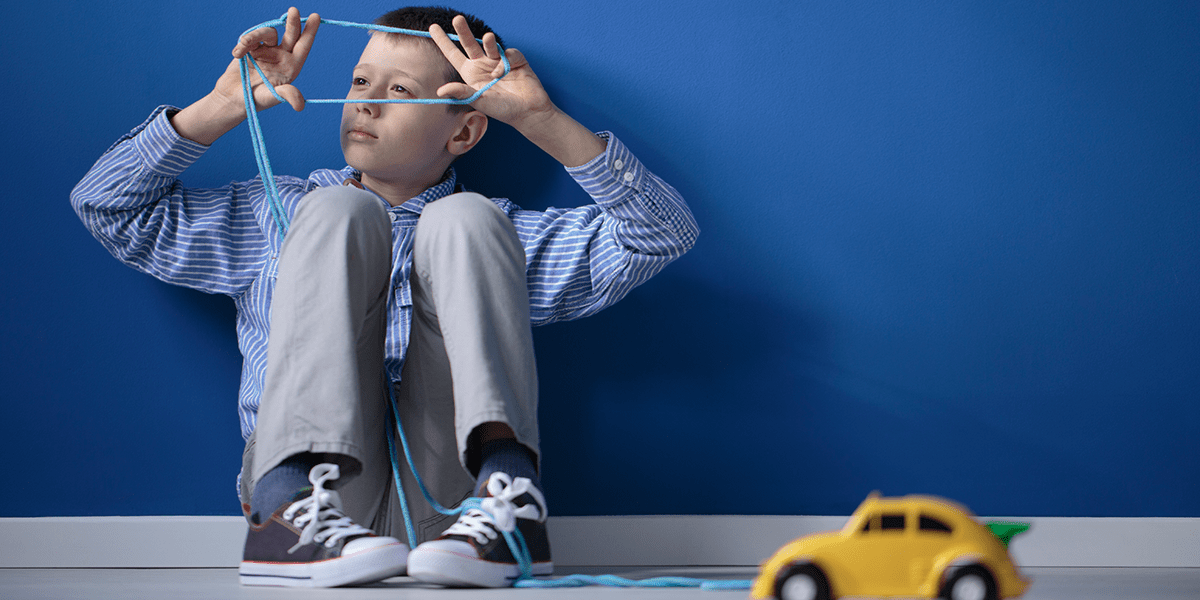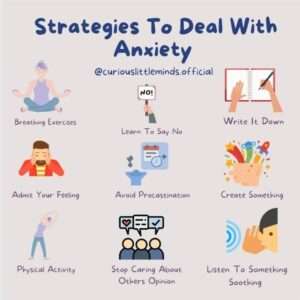Anxiety Disorders in Children
- Dr Maryum Sohail
- February 15, 2024
- 10:07 pm

Have you ever experienced being intensely nervous, apprehended by the unknown, or fear of the worst?
Well, this is a general perception of how anxiety may look like, and adults might be able to communicate certain ways out of it, but that might not be the case for your little one. There is a range of behavioral, emotional, and physical changes you might notice in your child exhibiting ‘anxiousness’.
What triggers anxiety in your child?
Anxiety is not just a one-day-old phenomenon without a solid background. It is a complex form of reaction to certain life events that may not seem hurtful to adults, but the scenario is opposite for a child’s brain.
- Your child can develop anxiety because of some stressful life event. These include.
- Seeing their parents fighting and arguing
- Getting injured in some accident
- separation from friends as in frequently moving house or school
- facing abuse (verbal, emotional, physical, sexual) at home or school
- The stress of exams or bullying at school
- Facing some serious illness
- might be because you’re an overly controlling parent
- Anxiety in your child could also be the result of genetics or a family history of anxiety
- Neurobiological factors like imbalances in chemical messengers in the brain can also contribute

Is my child anxious?
Children are very sensitive beings. From being the most creative to being the most introverted, they can exhibit a wide range of behaviors depending on how and where they are brought up! Let’s look at how your child might behave if he has developed anxiety;
Physical Signs:
- Your child might start complaining of frequent headaches or stomachaches.
- May refuses to have his snacks
- You might notice them being hyperactive and easily distracted
- Is irritable and you find it hard to make them sleep even at night. You may notice jerking or shaking during sleep.
- Starts to tremble or sweat when in a fearful state
- Will avoid making eye contact
Also, Check: understanding autism spectrum disorder
Emotional instability
- Tries to become a perfectionist and is fearful of making even minor mistakes.
- Becomes worried about separating events such as while dropping them at school or some relative’s home.
- May become angry without any significant reason.
- Experiences frequent nightmares about separating from their loved one.

Impact on behavior:
You might notice in your child problems in having appropriate human interaction according to age. For example.
- Your child may remain silent while in a group activity at school or home e.g., birthday parties or play activities.
- Becomes worried if you mention ‘school’ or refuse to go to school at all.
- Prefers to stay alone during break time at school.
- Believes and says that they can’t do a thing or a task, without any obvious reason.
- Constantly ask for permission for everything from the caretakers.
How do I handle anxiety in my child?
The best and simple way to help your little one cope with the challenges of anxiety is to ‘talk’. The problem with modern-day parenting is the idea that children need to do and learn everything at their schools, which is a wrong perception. Here are some ways how you, being a parent, can make a difference!
DO’s:
Lifestyle adjustments harmonize our body’s hormonal balance, ensuring that the response to stress doesn’t trigger anxiety
- Try to identify and avoid the triggering factor.
- Maintain a consistent routine, which provides a sense of predictability and reduces anxiety
- Encourage your child to get regular exercise and physical activity to release stress
- Ensure your child receives sufficient, uninterrupted sleep
- Help your child practice relaxation techniques like deep breathing, art and creativity, and nature walk
- Limit unnecessary exposure to media to prevent the accumulation of stress.
Open communication is indeed necessary to create a supportive environment for your child’s mental health:
- Talk to your child. Validation and empathy from their loved ones can help them open up about their feelings and where they’re hurting!
- Positive reinforcement by rewarding your child if they do a particular task. Offer some gifts and praise them positively.
- Help them build their confidence in their self. Give them small household tasks and appreciate them if they complete them well. If they fail, boost up their confidence in a positive way that they can do better.
- Encourage your child to understand the problem and let them face it with empathetic and compassionate behavior from your side.
DON’Ts:
- Never compare your child to others. This can put them under negative pressure
- Don’t invalidate your child’s emotions just because they are not mature enough. It gives a wrong perception of emotions as an insignificant part of human beings and contributes badly to their long-term behavioral pattern.
- Do not force them to hide, where they feel wrong. Do not tell them to ‘engulf it all’.
- Refrain from criticizing or blaming your child for this condition
- Don’t give any medication for anxiety prior to consulting your physician.
Also, Check: bullying
Should I Seek professional support for my child?
Know that you and your child do not have to fight this alone. Seeking the guidance of a mental health specialist is a valuable step toward identifying and addressing the underlying causes especially if you notice:
- Physical symptoms such as headaches, diarrhea, tummy aches
- Significant sleep disturbances interfering with excessive daytime sleepiness
- Socially withdrawn and isolated behavior
- Decline in academic performance
Mental health experts offer various psychotherapies such as cognitive behavioral therapy CBT interpersonal therapy IPT to improve your child’s symptoms and quality of life. Medication should only be considered under their guidance if the symptoms become severe or refractory to other therapies.
Communicate with Dr. Owais Rafiq for detailed insights and further guidance. Our team of experts can help you with advanced counseling and cognitive behavioral therapy as a specialized form of care.
Dr Maryum Sohail
Subscribe to Dr Owais YouTube channel
For parenting advice, child health, symptoms, causes and treatment of illness in children.





